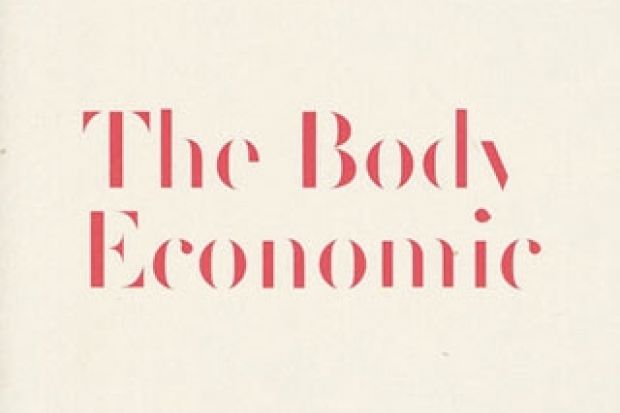These are tough economic times, no doubt about it. In the depth of the recession that has followed the 2007 financial crisis, politicians explain that they are making difficult but necessary decisions on our behalf that will be painful in the short run. They make the pain sound rather virtuous – we must tighten our belts, streamline ministries, cut out the fat. Often they use the (entirely fallacious) analogy of the household budget: if more money is going out than coming in, the household needs to find ways to cut expenditure.
Opinion polls suggest that the public accept this way of looking at things. Overwhelmingly, people believe that severe cuts are necessary and inevitable. They’re furious with the bankers but still think that reducing benefits for those on the lowest incomes is a reasonable way to reduce the debts we ran up in bailing those bankers out. It’s not pretty, but there isn’t a choice. We’ll tighten our belts and we’ll get through it.
David Stuckler and Sanjay Basu’s aim in this short and readable book is to set us straight on both parts of this myth – that there isn’t a choice, and that we’ll all come through it. Using examples from across the world – from the US’ Great Depression of the 1930s to the East Asian crash of the 1990s, and from the contrasting responses of Iceland and Greece to the current financial crisis – they explain the crucial role that government spending plays in stabilising an economy and limiting the depth and duration of a recession.
Keynes pointed out that ‘in the long run we are all dead’. Stuckler and Basu argue that, without adequate government intervention, quite a lot more people are dead in the short run, too
Thus far they follow in the tradition of Nobel prizewinning economists Joseph Stiglitz and Paul Krugman. But Stuckler and Basu are public health specialists, and their real contribution is to expose the human cost of austerity, counting the impact of current economic policies on suicide, depression, infant mortality and the spread of infectious diseases. The policies that many European countries have followed, they argue, often under pressure from the International Monetary Fund and the European Central Bank, have dealt a double blow to public health. Unemployment and economic insecurity have risen, leading to increases in depression and alcohol consumption. But at the same time, countries have cut back on health spending, social security and – in the UK – housing, thus downgrading the services and support that might have softened the blow.
Back in the 1930s, setting out the case for increasing government spending during a recession, John Maynard Keynes acknowledged that, left alone, economies would recover on their own in the long run. But, as he famously pointed out, “in the long run we are all dead”. Stuckler and Basu’s argument is that, without adequate government intervention, quite a lot more people are dead in the short run, too.
Much of the detail in the book is drawn from peer-reviewed journal articles by the authors and their colleagues. Basu is also a medical doctor, and anecdotes from his own practice are used to illustrate the arguments. This makes for a strong combination – a popular and journalistic narrative, but heavily footnoted so we can trace the arguments back to rigorous empirical analysis.
Perhaps inevitably, some issues are less well developed – and less carefully supported – than others. The parts about the NHS reforms weakened the storyline for me. Not that I disagree in principle: I understand (and share) the anger that has clearly led the authors to include this. But not enough space or time is taken to explain how the extension of market forces into a system that remains free to all at the point of delivery is likely to be so devastating to equitable access to healthcare, and these parts of the book read too simplistically. Maybe this could have been (or could still be) a follow-up book, focused specifically on the impact of marketisation on public health.
Nevertheless, this book deserves to be widely read and widely influential. It brings crucial arguments, set out and tested in academic papers, to a larger audience. It lays bare the madness of the conventional wisdom that the answer to the current crisis is to cut public spending, and it explains clearly why the social policy response to economic events matters. It reminds us that politicians have a devastating tendency to listen to ideology rather than history – and that the cost of this approach can be counted not just in lost economic output but in human lives.
The Body Economic: Why Austerity Kills
By David Stuckler and Sanjay Basu
Allen Lane, 240pp, £20.00 and £11.99
ISBN 9781846147838 and 9780141976037 (e-book)
Published 21 May 2013
Register to continue
Why register?
- Registration is free and only takes a moment
- Once registered, you can read 3 articles a month
- Sign up for our newsletter
Subscribe
Or subscribe for unlimited access to:
- Unlimited access to news, views, insights & reviews
- Digital editions
- Digital access to THE’s university and college rankings analysis
Already registered or a current subscriber? Login




